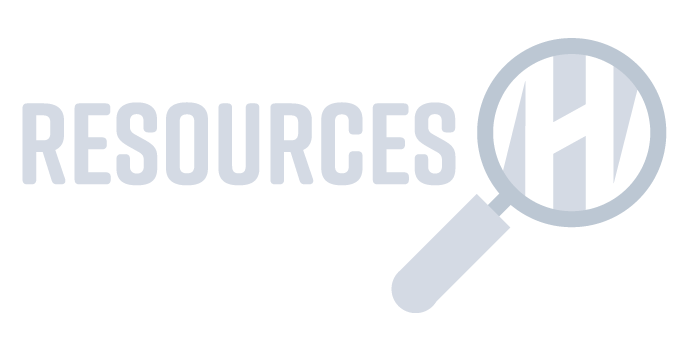Amidst ongoing struggle in the news business, new reporters from all walks of life are entering the field to keep New Jerseyans informed about the issues affecting their communities. And they were trained for free.
Fueling Community Journalism through New Jersey Community Colleges is a collaboration between four community colleges, the New Jersey Council for the Humanities, and Journalism + Design at The New School that offers free noncredit community journalism certificates to state residents.
Funded by a grant from the New Jersey Civic Information Consortium, training is tailored to plug news and information gaps in the communities each school serves.
“While still in pilot phase, this program is already making an impact within the New Jersey information ecosystem,” said Nick Gilewicz, Ph.D., who directs the program for NJCH. “These programs are the first steps in our commitment to cultivating humanistic, community-centered, and sustainable forms of journalism that serve local community needs and that facilitate democratic engagement.”
The first cohort of colleges—Mercer County Community College, Atlantic Cape Community College, Sussex County Community College, and Middlesex College—have each created distinctive pathways to:
- Increase the quantity and improving the quality of civic news,
- Improve access to government and other public information,
- Reach communities underserved by current news media,
- Connect community members with existing news and information systems.
Mercer County Community College
Mercer completed its first certificate program, J-Lab, in March. Participants ranged in age from 17 to 78 and learned core reporting skills while writing community news stories for Mercer’s campus newspaper, The College VOICE:
- Professional journalists with specializations in agriculture, sports, and local Trenton news discussed community reporting with program participants.
- Most participants wanted to continue their work. Mercer professor Holly-Katherine Johnson is planning a series of “J-Lab Workshops”—one-off training sessions, open to the public, about topics ranging from working with press releases to how to access public records.
- Johnson and the student editor of The College VOICE (who worked on J-Lab) were inspired to apply to, and were accepted into, the Solutions Journalism Network’s “Training-the-Trainers” program. In April, they joined an international cohort of journalists who work towards implementing journalism that reports on responses to social concerns.
- Mercer will offer another certificate program in the fall, expanding from six to eight in-person sessions.
Atlantic Cape Community College
Atlantic Cape also finished its first program at the end of March. Comprising working adults who engaged in asynchronous training and activities, participants came from community organizations including Habitat for Humanity and the Cape May Bird Sanctuary.
This program introduced students to journalistic ways of thinking, focusing on the newsworthiness of their organizations’ community work. In their next program, planned for the late spring, professor Jennifer Field said that Atlantic Cape will introduce more in-person meetings and synchronous work to provide participants with additional opportunities to learn from each other and to network across their organizations.
Sussex Community College
April finds Sussex Community College halfway through its first program, which offers community members both in-person and online/remote learning opportunities. Professor Cheryl Cooper’s in-person sessions are recorded for the use of all participants. Sussex’s participants come from across the community, ranging from a traditional college-aged student exploring career opportunities, to a member of the college’s science faculty who wants to learn more about journalism, to a former journalist looking to brush up skills and return to the profession.
Sussex’s program will conclude in May, and the college plans to offer a second session in 2024 as well.
Middlesex College
Middlesex College will launch their program in June. Already in high demand, the college has reached the enrollment cap for the class and has expanded it to accommodate additional community members. Combining weekly in-person meetings with online work, this hybrid course will provide resources to the wider public and will connect participants with additional community organizations:
- A community journalism resource hub will compile links to government sites and public information—at the state, county, and municipal levels—along with instructions for how to gather and interpret public data. Used for the class, but available to the wider public, the resource hub will offer guides to regional media, and to topics and organizations of community interest.
- The class itself, according to professors Melissa Edwards and Cristobal Espinoza-Wulach, will work with community organizations including New Brunswick’s coLAB Arts to cover issues of public concern in the county.
Working closely with Journalism + Design and our community college partners, NJCH and Fueling Community Journalism should establish a strong base for enhancing civic involvement statewide.
Fueling Community Journalism Through NJ Community Colleges is made possible by a generous grant from the New Jersey Civic Information Consortium. The Consortium, created by the state of NJ in 2018, is an independent, 501©(3) nonprofit organization that funds initiatives to benefit the State’s civic life and meet the evolving information needs of New Jersey’s communities. Learn more about their work and other grantees at https://njcivicinfo.org
Journalism + Design is a lab at The New School dedicated to nurturing a resilient free press for the future. Through partnerships, public curricula and hands-on mentorship we build pathways for more people to participate in their local news ecosystems.



